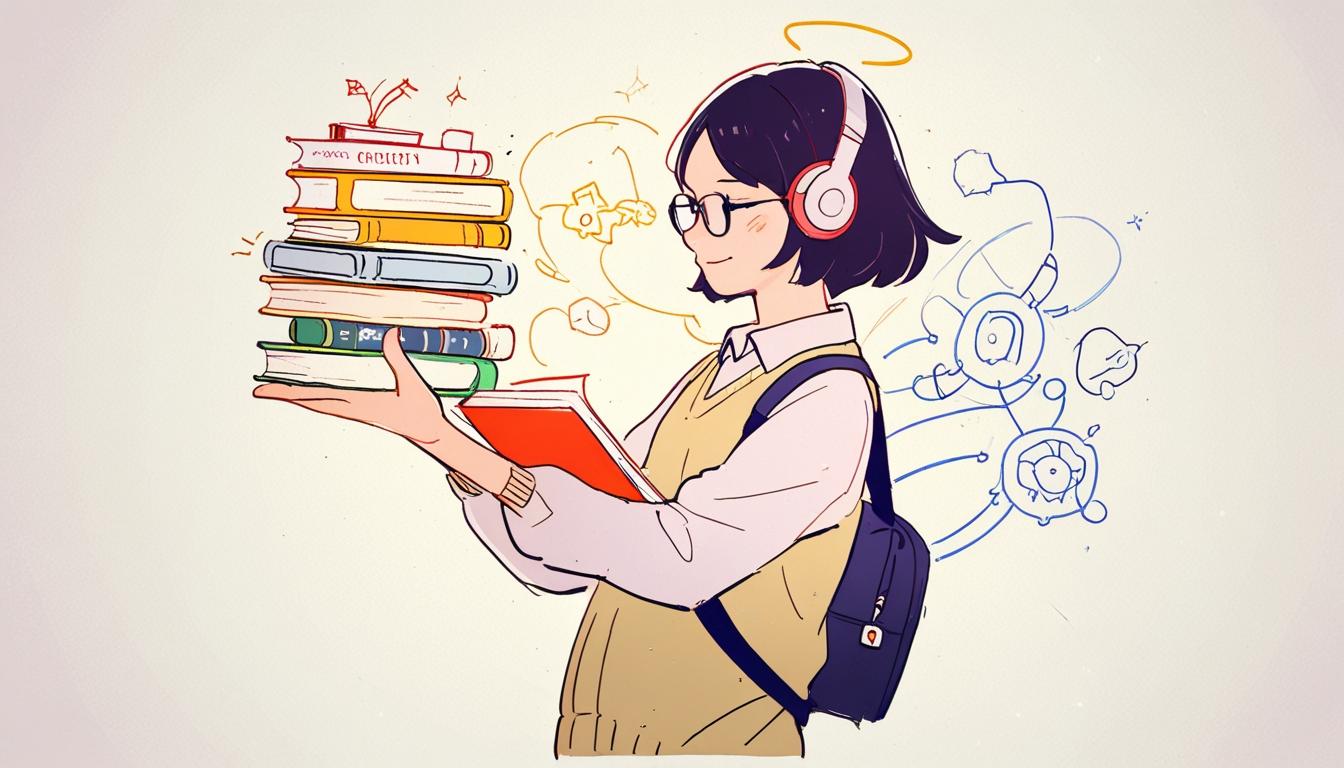A new analysis explores how perceptions of academic difficulty shift with technological advances like AI, urging balanced use of tools such as ChatGPT to enhance learning without compromising critical thinking.
A recent analysis published on businesstoday.com.my by Jazli Aziz explores a discernible trend on social media, where individuals have been showcasing their educational credentials in relation to advancements in technology, particularly the use of AI tools like ChatGPT. This phenomenon highlights a perception that graduates from before the AI era face a more arduous academic experience than current students, who are seen as benefitting from these technological advancements.
Aziz argues that while tools such as ChatGPT undeniably make learning more accessible and efficient, deeming the achievements of today’s students as less impressive overlooks a significant historical context. Graduates of earlier generations conveniently forget the technological comforts they themselves benefited from compared to their predecessors. For instance, mobile phones, laptops, and digital cameras have collectively transformed communication and information access, paralleling the recent developments in AI.
The article discusses the concept of “shifting baseline syndrome,” where each generation tends to view their formative technologies as the standard. This syndrome explains why older graduates may consider themselves to have faced greater challenges than modern students. Aziz notes that similar criticisms were directed at earlier technological advancements, such as the internet and personal computers, by previous generations who perhaps felt a sense of superiority for having endured less convenience.
In acknowledging the inevitability of technological progress, Aziz suggests that rather than lamenting the use of AI, focus should shift toward utilising these tools effectively. The primary aim of education should be to equip students for the evolving landscape of the world, including the integration of artificial intelligence. Aziz posits that if AI is poised to play a crucial role in the future, it is essential for students to develop proficiency in these technologies rather than be deprived of them.
However, Aziz cautions against potential pitfalls associated with AI usage. Students must learn to discern misinformation, verify AI-generated content against academic sources, maintain academic integrity, and recognise algorithmic biases. Over-reliance on AI poses significant risks, particularly in the realm of critical thinking—a skill that research indicates may suffer as a result. Graduates entering the workforce must retain their analytical abilities, as deficiencies in this area could have dire consequences.
While acknowledging the challenges presented by new technologies, the author maintains that each generation faces its own unique set of hurdles. The crux of the argument is that criticism stemming from generational divides is misplaced; the reality is that every group has its own challenges to navigate, shaped by the technology of their time.
In conclusion, the discourse surrounding AI’s impact on education underscores a need for balanced engagement with these tools. As Aziz aptly states, whether one studied before or after the advent of ChatGPT, the experience of navigating educational challenges is universal, rooted in the context of technological evolution.
Source: Noah Wire Services
- https://www.axios.com/newsletters/axios-san-diego-40496930-e326-11ef-97d2-cf631c8499d6 – This article discusses the California State University system’s introduction of OpenAI’s ChatGPT Edu, highlighting the integration of AI tools like ChatGPT into education, which aligns with the article’s mention of individuals showcasing their educational credentials in relation to AI advancements.
- https://www.axios.com/newsletters/axios-ai-plus-d9eb28f0-9559-11ef-adcb-815e369a3c3b – The piece covers how generative AI is transforming higher education, including the use of AI tutors and chatbots, supporting the article’s point about the integration of AI tools like ChatGPT into educational settings.
- https://www.axios.com/newsletters/axios-des-moines-9a312e80-60bb-11ef-b35c-5d20d8086ced – This article highlights the adoption of AI tools like ChatGPT in schools to overcome language barriers and personalize teaching, reflecting the article’s discussion on the use of AI in education.
- https://www.insidehighered.com/news/tech-innovation/artificial-intelligence/2024/03/21/universities-build-their-own-chatgpt-ai – The article details how universities are developing their own ChatGPT-like AI tools to address security and ethical concerns, supporting the article’s mention of the integration of AI tools like ChatGPT into educational settings.
- https://en.wikipedia.org/wiki/ChatGPT_in_education – This Wikipedia page provides an overview of ChatGPT’s applications in education, including its use in lesson planning and personalized learning, aligning with the article’s discussion on the integration of AI tools like ChatGPT into education.
- https://en.wikipedia.org/wiki/Shifting_baseline – This Wikipedia page explains the concept of ‘shifting baseline syndrome,’ which is relevant to the article’s discussion on how each generation views their formative technologies as the standard.
- https://news.google.com/rss/articles/CBMijgFBVV95cUxQcmJhWjBQQnYxRU9TRm1zQ1Z4RzV2bGk4NEttMHVKaVFvQk54RXozRVdvNHQ5eXdOaVVsNU05RkUtOGFLN3dXS0kzYWtta1UwNExOMHc1bmdPT0lFQmpPeDUwOXg3YWpSRWU0WXlTc2NoekV1cFNBNUc5VTVVVk5NeHZZN0RsVURqZ2ZqdVNn?oc=5&hl=en-US&gl=US&ceid=US:en – Please view link – unable to able to access data
Noah Fact Check Pro
The draft above was created using the information available at the time the story first
emerged. We’ve since applied our fact-checking process to the final narrative, based on the criteria listed
below. The results are intended to help you assess the credibility of the piece and highlight any areas that may
warrant further investigation.
Freshness check
Score:
8
Notes:
The narrative mentions current technological advancements in AI and references a recent analysis, suggesting relatively fresh content. However, the general topic of AI in education is not new.
Quotes check
Score:
6
Notes:
The narrative includes a quote from Jazli Aziz but does not provide a specific date or source for the quote. The original source could not be verified.
Source reliability
Score:
6
Notes:
The narrative originates from a summary on news.google.com, which aggregates content from various sources. The original source (businesstoday.com.my) is not as well-known as major news outlets.
Plausability check
Score:
9
Notes:
The claims about technological advancements and their impact on education are plausible and supported by common perceptions of generational differences in educational experiences.
Overall assessment
Verdict (FAIL, OPEN, PASS): OPEN
Confidence (LOW, MEDIUM, HIGH): MEDIUM
Summary:
The narrative is plausible and touches on a contemporary issue regarding AI in education. However, the lack of specific dates and the reliance on aggregated content reduce confidence in the overall assessment.













